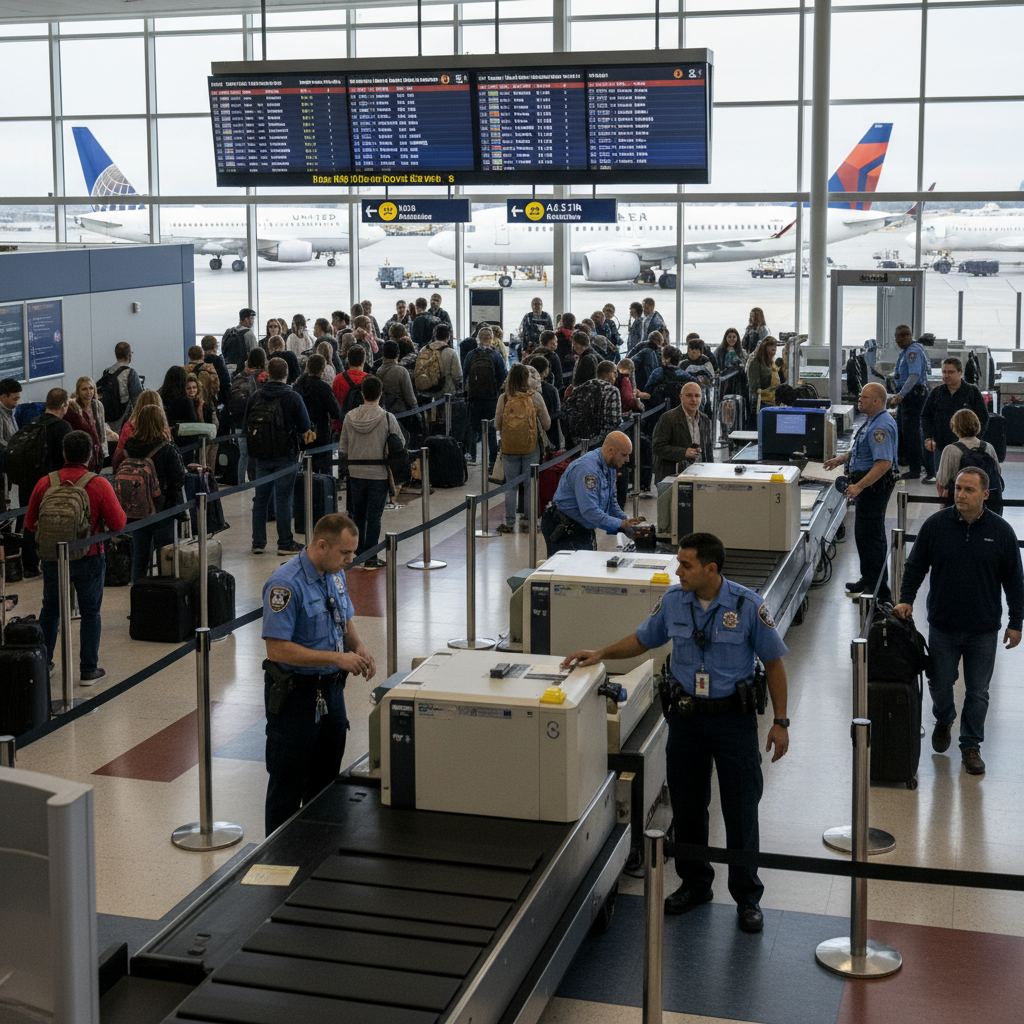Physical Address
304 North Cardinal St.
Dorchester Center, MA 02124
Physical Address
304 North Cardinal St.
Dorchester Center, MA 02124
Global aviation news tracker
Global aviation news tracker

TSA says travelers should expect airport security delays as the federal shutdown affects staffing at U.S. airports.
The Transportation Security Administration (TSA) is urging passengers to brace for airport security delays at U.S. airports as a federal government shutdown impacts staffing and screening operations. TSA officials say they are working to keep checkpoints open and safe but warn longer lines, slower processing, and occasional disruptions may continue while funding issues persist.
Many major airports are seeing variability in wait times as screeners are reassigned, called to other duties, or working with reduced schedules. That means flights can still operate, but passengers should factor extra time for security screening, re-screening, and possible secondary checks. TSA emphasizes that safety protocols remain in place and that passengers should follow instructions from officers to keep lines moving.
Plan ahead: arrive earlier than usual, follow airline check-in guidance, and sign up for real-time alerts from your carrier and the airport. Keep identification and boarding passes handy, and be prepared for tighter staffing at some checkpoints. If you use trusted traveler programs, bring documentation—the process can still be faster for enrolled passengers, but availability varies by airport.
TSA officials stress they are prioritizing screening coverage and are coordinating with airports and airlines to limit disruptions. Travelers should remain patient and cooperative—officers will often redirect lanes or open additional checkpoints when staffing allows. For the latest information, check your airline’s status notifications and the airport’s official channels.
Until federal funding is restored, expect some level of uncertainty at checkpoints nationwide. Simple steps—arriving early, packing for quick screening, and staying informed—are the most reliable ways to reduce travel stress during this period.